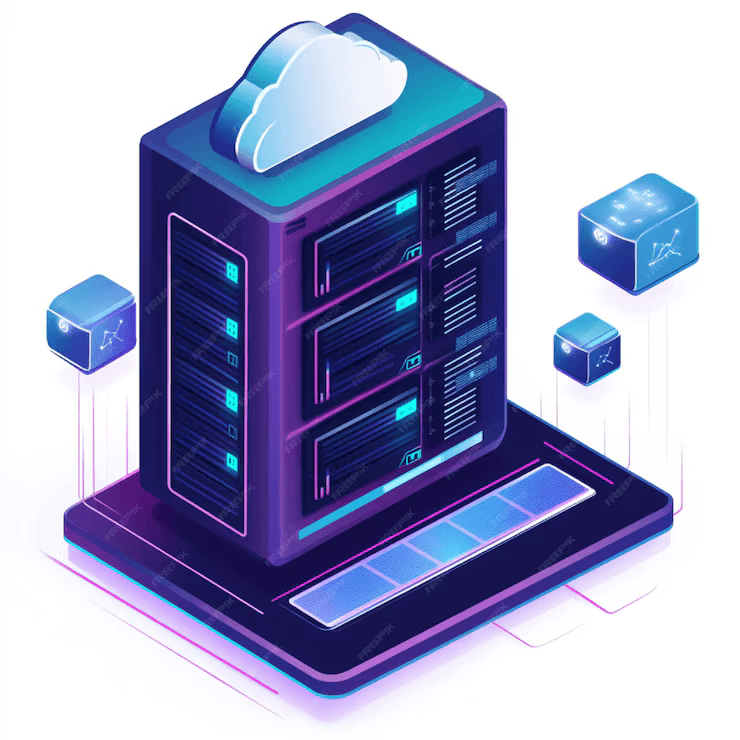Choosing the right web hosting platform is one of the most crucial decisions when starting an online business. The performance, security, and management of your e-commerce store hinge on this choice. With so many options available, selecting the right one can be daunting.
In this guide, I’ll walk you through the basics of e-commerce web hosting, the types of hosting options available, and the essential features to look for to ensure your store’s success.
What is E-commerce Web Hosting?
E-commerce web hosting refers to a service that allows your website to be accessible on the internet. Specifically designed for online stores, e-commerce hosting is optimized to ensure smooth functionality for your shop. It often includes extra features such as shopping cart software, SSL certificates, SEO enhancements, and flexible resources.
Types of E-Commerce Hosting
There is no one-size-fits-all for e-commerce hosting. Understanding the types of hosting options available will help you choose the best fit for your business needs. Here are three main types:
1. Shared Hosting
Shared hosting is the most budget-friendly and widely used option. Multiple websites share the same server, splitting resources such as RAM and processing power. Shared hosting is an affordable option for small or newer businesses that don’t anticipate heavy traffic. However, as your traffic grows, shared hosting may struggle to handle large surges, leading to slower performance.
2. Dedicated Hosting
Dedicated hosting gives you exclusive access to an entire physical server. This means your online store benefits from superior speed, performance, and security. Dedicated hosting is typically more expensive and requires technical skills for setup and maintenance. However, many hosting providers offer managed dedicated servers, where they handle maintenance tasks for an additional cost.
3. Cloud Hosting
Cloud hosting consists of multiple servers connected over a network, offering scalability as your site grows. This flexible solution is ideal for businesses that experience high traffic fluctuations. Cloud hosting allows you to add resources when traffic spikes and remove them during slower times. It’s generally more expensive than shared hosting but offers better scalability.
Choosing the Right E-commerce Platform
Once you’ve selected an e-commerce hosting provider, the next step is to choose an e-commerce platform. The platform integrates with your hosting to provide essential online store functionality, such as shopping carts and checkout options. Some web hosts offer bundled e-commerce platforms with hosting plans, making setup easier.
Here are a few factors to consider when choosing an e-commerce platform:
- Does it come with hosting services included?
- What SEO tools are available?
- How secure is it?
- How much does it cost, and does it fit within your budget?
- Is it easy to manage, or will you need to hire someone for technical maintenance?
Essential E-Commerce Tools and Services
When selecting a hosting provider for your online store, it’s important to evaluate the extra features included. Key features such as website speed and security directly impact your customers’ experience.
Tools and Services for a Faster Website
Fast-loading websites are crucial for online stores, as slow load times can result in higher bounce rates and fewer conversions. Here’s what to look for:
- Content Delivery Network (CDN)
A CDN is essential for global businesses. It replicates your website content across multiple servers worldwide. When someone visits your site, the CDN serves the content from the server closest to them, reducing load times. - Caching Technology
Caching stores copies of your site’s data and serves it to visitors quickly, rather than processing the code every time a page is requested. This can significantly improve load times. - Latest PHP Version
If your store runs on a PHP-based platform (like WordPress/WooCommerce or Magento), your hosting provider should offer the latest PHP version. This can improve your site’s performance and security. - Integrated Speed Optimization Tools
Some hosts offer built-in tools for optimizing website performance, such as advanced caching solutions. For example, SiteGround provides a WordPress plugin with advanced frontend, media, and caching improvements.
Essential Security Features
Security is paramount for any e-commerce site. Customers need to trust your site to complete purchases and share sensitive information like credit card details. Here are the security features you should look for:
- SSL Certificates
SSL certificates encrypt the data transferred between your site and its visitors. This is critical for protecting sensitive information such as payment details. Ensure your hosting provider offers the right type of SSL certificate for your store. - Automated Backups
Your hosting provider should offer regular automated backups, ideally daily. This ensures that your data is safe and can be easily restored in the event of a system failure or hack. - Additional Security Tools
Many hosting providers offer extra security features, such as firewalls, malware scanning, and spam protection. Look for providers that include these tools to protect your store from potential threats.
Customer Support
Customer support is vital for maintaining a well-functioning online store. When issues arise, you need quick assistance to minimize downtime and prevent lost sales. Choose a hosting provider that offers 24/7 support and has a strong reputation for responsiveness and expertise.
Conclusion: Getting the Most from Your E-Commerce Hosting Provider
Your hosting provider will significantly influence your website’s speed, security, and overall performance. By carefully considering the factors listed above, you can choose the best hosting platform for your e-commerce store and set your business up for success.








